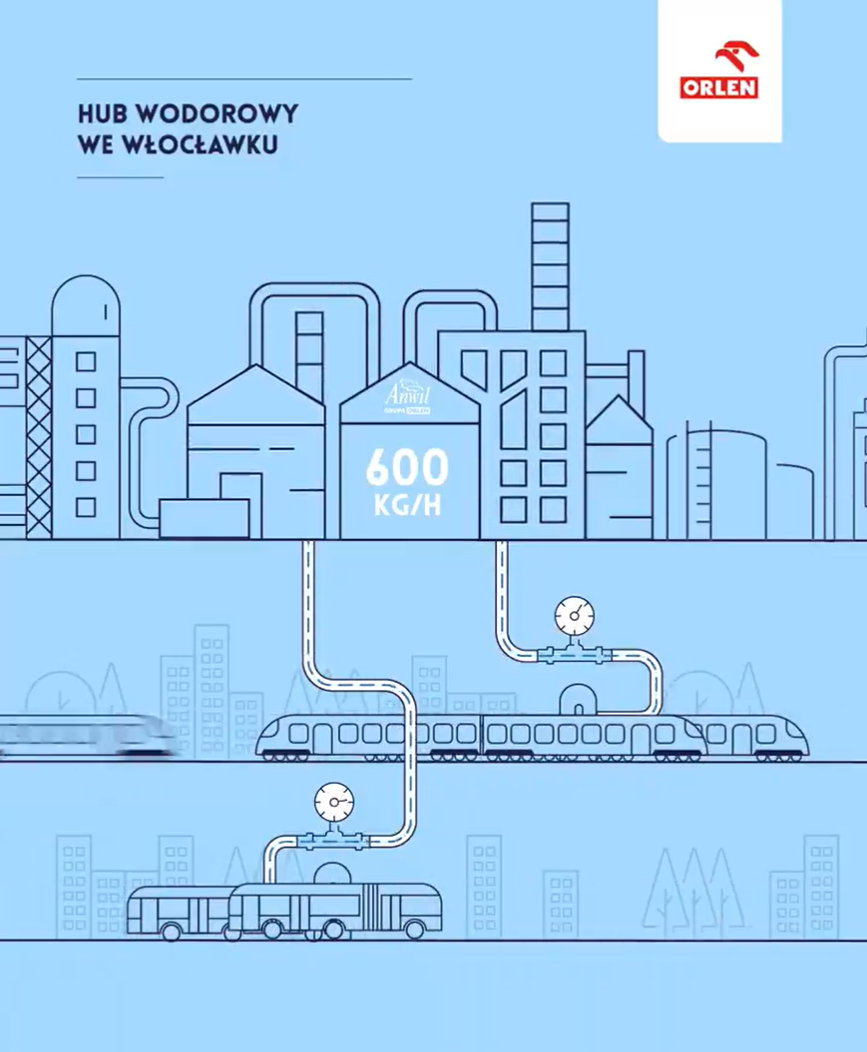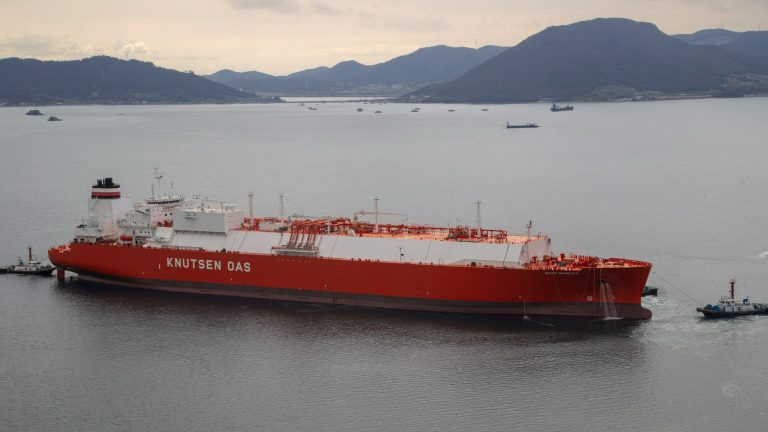Cooperation of PKN ORLEN and partner cities for the hydrogen fuel of the future

Hydrogen as a fuel will become more and more important, and PKN ORLEN, starting further investments, wants to have a significant share in its production. The company is strengthening cooperation with local governments to be able to work together for the development of zero-emission public transport powered by hydrogen.
Experts point out that hydrogen is a safe and environmentally friendly fuel. It is used, among others, in fuel cell vehicles, which in the near future may constitute an alternative to traditional drives powered by fossil fuels, as well as to lithium-ion batteries. Clean and ecological hydrogen transport in cities is becoming a real prospect, and PKN Orlen, which invests in the production of high-purity hydrogen, cooperates with local governments and municipal companies – potential recipients of hydrogen.
Clean fuel for public transport
Today, the greatest potential for hydrogen – for technological and economic reasons – is seen in public and cargo transport. The hydrogen-powered bus has a range of 350-450 km and can run all day on one refueling (which takes only about 10 minutes). Over a life cycle estimated at approximately 12 years, replacing just one diesel city bus with a hydrogen-powered vehicle could prevent 800 tonnes of carbon dioxide being emitted into the atmosphere. An additional benefit is the reduction of noise in agglomerations, because hydrogen-powered buses are one-fifth quieter than a traditional engine. No wonder that Polish cities want to invest in hydrogen transport, and the company from Płock, recognizing the potential of hydrogen as a clean fuel for transport, is investing in its production. By the end of 2021, the company will build a hydrogen hub in Włocławek. In addition to it and a similar investment planned in Płock, the company is also developing hydrogen technologies at the Orlen Południe biorefinery in Trzebinia. The production of hydrogen as transport fuel is planned to start there in 2021.
Hydrogen from the hub in Włocławek will initially be intended primarily for public and freight transport, including rail.
–Particularly at the first stage of development of hydrogen technology, it will be most important in public and freight transport. That is why we cooperate with both local governments and transport companies, which will enable us, on the one hand, to take a strong position on the market and, on the other hand, to develop technology independently. In cities in northern and western Europe, hydrogen public transport test projects are expanding, and low-emission buses are becoming an integral part of local public infrastructure. This is a good direction – assessed by Józef Węgrecki, member of the PKN ORLEN Management Board for Operations.
The beginnings of cooperation
The company has already signed several letters of intent on cooperation to develop hydrogen-powered public transport with local governments and municipal companies that are potential recipients of this fuel. This includes: Upper Silesia-Zagłębiowska Metropolis, Krakowski Holding Komunalny and Miejskie Przedsiębiorstwo Komunikacyjne w Krakowie and the City of Płock. Agreements with other local governments are being negotiated.
The company also signed a letter of intent with PESA Bydgoszcz for the construction of a hydrogen-powered locomotive, which will be used for the logistics needs of PKN Orlen.
–The hydrogen public transport network has a real impact on the return on investment costs in charging stations and supports the fledgling, but with significant potential, individual hydrogen transport, which is also an area of our strategic investments – Józef Węgrecki, member of the PKN ORLEN Management Board for Operations. None in Poland so far there are hydrogen charging stations for passenger cars, but refueling installations are already located at two Orlen Group stations in Germany, and in June 2021 they are also to appear at three gas stations in the Czech Republic.
Green investments
Investments in infrastructure for transport based on hydrogen fuel are part of the European sustainable development strategy and respond to EU environmental goals. According to them, by 2030, the transport industry will minimize greenhouse gas emissions into the atmosphere by 30%. compared to 2005. Hydrogen – next to electromobility and second-generation biofuels – is mentioned as the fuel of the future, which is expected to significantly enable the achievement of the assumed goals.






